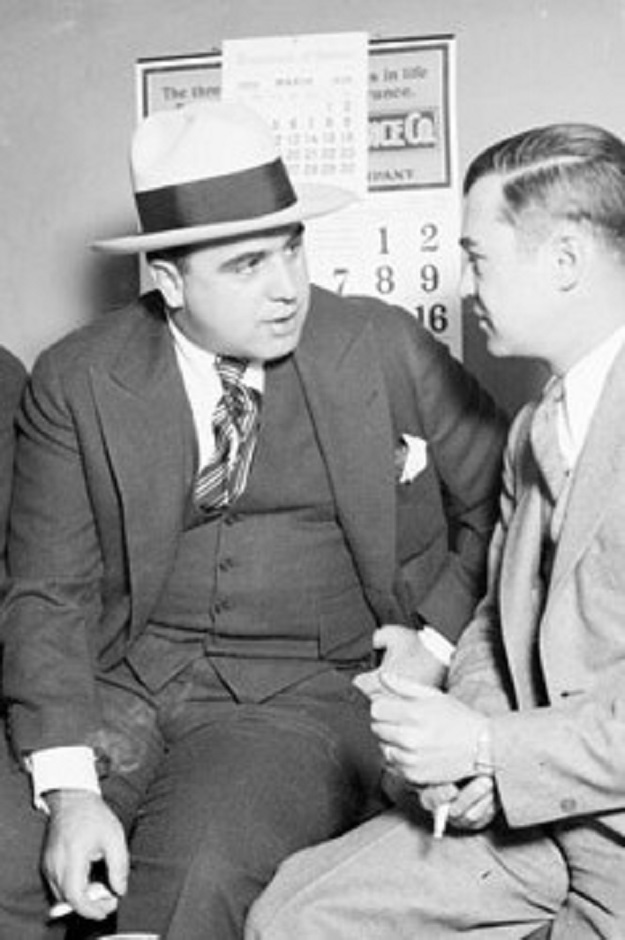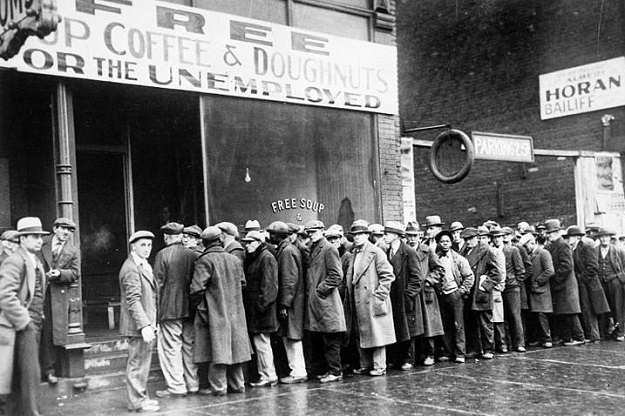How Al Capone made the IRS famous
By John R. Schmidt

How Al Capone made the IRS famous
By John R. SchmidtThe Internal Revenue Service is in the news lately. This is a good time to look at the case that solidified its reputation—a case involving a Chicagoan.
When the federal government tried to impose an income tax in the 1890s, the Supreme Court declared the tax unconstitutional. The only way around the decision was by constitutional amendment. In 1909 the proposed 16th Amendment—allowing a tax on incomes—was passed by Congress. Four years later, with three-fourths of the states having ratified, the amendment became part of the Constitution.
The feds then created an agency to collect the tax. In 1918 the agency became known as the Internal Revenue Service.

Herbert Hoover was inaugurated as President of the United States on March 4, 1929. This was barely three weeks after the St. Valentine’s Day Massacre had focused national attention on gang-ridden Chicago. Everybody suspected that Al Capone was behind those killings, and a lot more. Yet all the forces of law seemed powerless against him.
Hoover was a Republican, and Capone had used his muscle to help Republican Big Bill Thompson get elected Mayor of Chicago. But politics was no cover for Capone. The national GOP was embarrassed by Thompson’s corrupt administration.
So President Hoover decided to go after Capone on his taxes. Sure enough, “the man who owns Chicago” had been rather cavalier about his payments. He was brought to trial in 1931.
The whole mess could have been avoided if Capone had just paid his taxes. But can you imagine the conversation if Capone had hired a tax adviser?
CAPONE: Okay. Now that I’ve declared my business income, let’s talk about my deductions. First, there are all the bribes I’ve paid to politicians, and judges, and …
TAX ADVISER (interrupting): I’m sorry, Mr. Capone. Bribes are not considered a legitimate deduction.
CAPONE: Well, I have hired some out-of-town trigger-men—I mean consultants—to help me deal with my competitors.
TAX ADVISER: I’m afraid those aren’t legitimate deductions, either.
CAPONE: What about my expenses for bullets, and for trucks to haul booze, and for customizing my fleet of getaway cars?
TAX ADVISER: No, Mr. Capone. Expenses incurred for performing illegal acts are not deductible.
CAPONE: You’re saying I have to pay taxes on the money I make from illegal acts, but can’t deduct the expenses? Just what deductions can I use?
TAX ADVISER: I think that you can probably deduct the cost of your soup kitchen for the unemployed. And, of course, you can deduct my fee as your tax adviser.

After a lengthy trial, Capone was found guilty of income tax evasion on October 17, 1931. He was sentenced to eleven years in prison and had to pay a hefty fine. That was the end of Big Al.
And the real beginning of the IRS.

